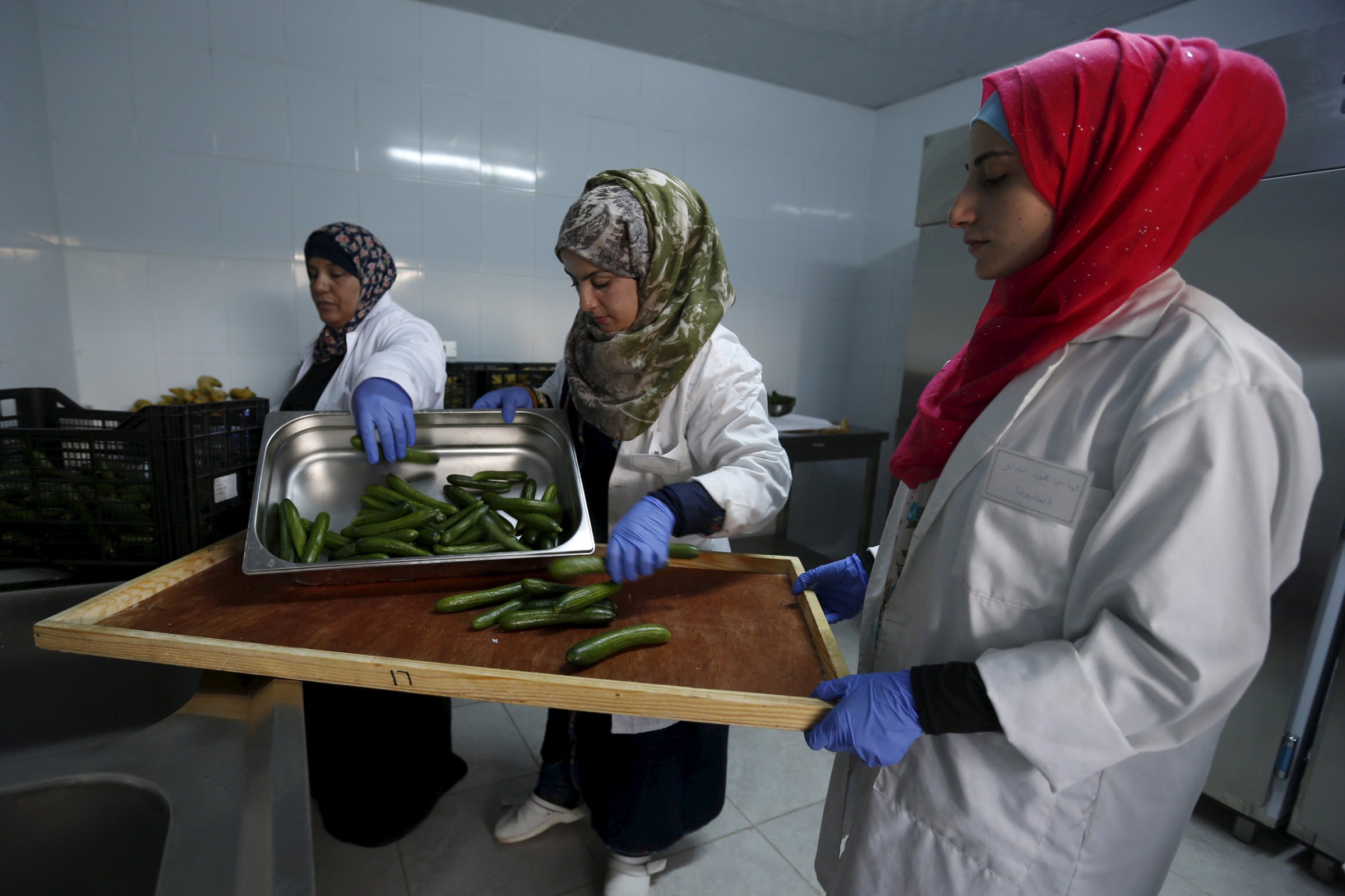
Allan Jury is the senior advisor for World Food Program USA, and Kerry Sullivan is president of the Bank of America Charitable Foundation.
Natural disasters and conflict have a disproportionate impact on the world’s poorest communities, leaving many families displaced and homeless without access to the most basic elements of survival. The ongoing conflict in Syria and earthquake in Ecuador last month are just two examples of such devastation, but there are millions more around the globe in need of help. About 60 million people worldwide are displaced because of conflict. More than 175 million people in developing countries have been displaced by natural disaster since 2008, and evidence shows that the instances of climate-related natural disasters are increasing.
With millions of people facing humanitarian crises each day—many of whom are facing hunger and extreme poverty—a strategy to provide financial and need-based support to communities is critical. It is vital for the survival and well-being of those whose lives have been devastated by these crises. But in an increasingly interconnected world, no one is immune from these crises, even if they are taking place thousands of miles away.
It is for all of these reasons that the need for an aligned strategy and system of support is greater than ever before. A recent joint report from leading humanitarian organizations in the U.S. laid out recommendations for how to strengthen the way the international aid system operates. This new report has been presented to members of Congress, the Obama administration and other leading advocacy and relief organizations ahead of the World Humanitarian Summit this month in Istanbul—the first convening of its kind—which seeks to alleviate such unprecedented human suffering by putting better systems, policies and partnerships in place.
One of the report’s key recommendations focuses on mobilizing the private sector to play a bigger role. The private sector has a unique role and expertise that can improve our ability to respond to the global humanitarian challenges we face. Now more than ever, there is an opportunity to bring the skills, support and innovation of America’s leading businesses to bear if we’re going to create a safer, stronger future for everyone. This includes job creation in middle-income countries like Lebanon, Jordan, and Kenya, which host a majority of the world’s refugees, as well as technical expertise and in-kind donations that could improve the way humanitarian organizations do business.
As additional motivation for private-sector engagement, humanitarian work can help spur local economic growth and development, an example of shared success through which we all benefit. The UN World Food Programme (WFP)—the world’s largest hunger relief agency— has introduced a number of innovative initiatives that meet the needs of refugees while improving local economies. These include introducing electronic food vouchers that enable the most vulnerable households to shop in nearby markets, thus improving dietary diversity and access to nutrition while supporting local vendors and saving time and money on transportation and shipping. In Jordan, the agency recently launched its “Healthy Kitchen” initiative, which employs Syrian women and local farmers to grow and prepare fresh lunches as part of its school meals program for children living in the Zaatari and Azraq refugee camps.
Some of the largest and most respected brands in the U.S. are already contributing to humanitarian relief by working with WFP to enhance the agency’s operations and fund lifesaving programs when it matters most. Bank of America, for example, is helping WFP reach communities faster and more efficiently through World Food Program USA’s Emergency Response Fund. The Fund provides an efficient, flexible solution for companies to allocate critical dollars immediately to address lifesaving logistics and food needs at a moment’s notice when crisis strikes. This kind of flexible, predictable and sustainable funding is another key recommendation outlined in this new report.
Conflict and natural disasters may happen at the local level, but they are ultimately global problems that need global solutions. As world leaders get ready to gather in Istanbul for the World Humanitarian Summit, there is a significant opportunity for businesses to evaluate how they can play a role in creating a safer and more sustainable world.
More Must-Reads from TIME
- Donald Trump Is TIME's 2024 Person of the Year
- Why We Chose Trump as Person of the Year
- Is Intermittent Fasting Good or Bad for You?
- The 100 Must-Read Books of 2024
- The 20 Best Christmas TV Episodes
- Column: If Optimism Feels Ridiculous Now, Try Hope
- The Future of Climate Action Is Trade Policy
- Merle Bombardieri Is Helping People Make the Baby Decision
Contact us at letters@time.com